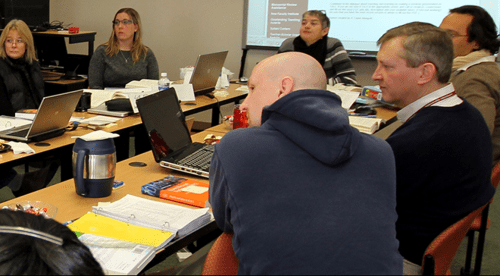Center for Teaching and Learning (CTL)

- Contact Information
-
- 570-389-4310 (student desk)
- Send an Email
- CTL Webpage
-
Director: Dr. Jennifer Demchak, Mansfield
Associate Director: Dr. Denise Davidson, Bloomsburg
Associate Director: Dr. Regan Garey, Lock Haven
Administrative Assistant: Cathy Martin, MansfieldBloomsburg Campus Center for Teaching and Learning
419-420 Andruss Library
- Office Hours
-
Email the director at CTL@commonwealthu.edu
Or email your campus Director or Associate Director
The Center for Teaching and Learning, the new name representing the integration of campus teaching centers for Commonwealth University, facilitates dialogue among faculty on the art and science of university teaching; it provides support of teaching through center resources and seminars.
All faculty resources are now available through the Center for Teaching and Learning's Brightspace (D2L) organization. Every faculty member should have access to the CTL through Brightspace. You can search and pin CTL to keep this resource handy. If you cannot find the CTL organization in Brightspace, contact Dr. Jennifer Demchak, CTL Director.
Programs and services are designed to encourage discussion and exchange of ideas, disseminate information, develop projects and conduct inquiries that enhance knowledge and practice of university instruction, stimulate and enable the development of effective strategies and technologies, provide new faculty with information and support, respond to faculty needs and promote a commitment to teaching excellence.
How can you contribute?
- Join in the conversation by participating in Center for Teaching and Learning events.
- Become a resource person who shares his/her expertise. Look for calls to present or contact us at CTL@Commonwealthu.edu
- Make recommendations to Center for Teaching and Learning. Are there books, articles, websites or blogs that CTL might share with faculty?


